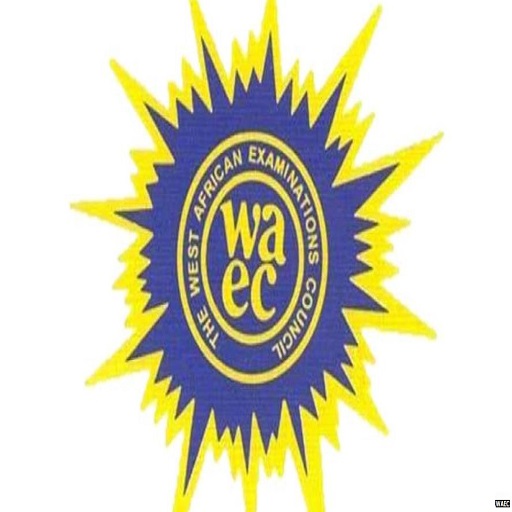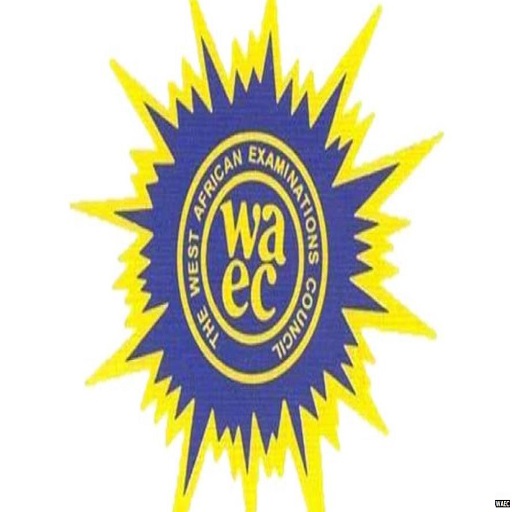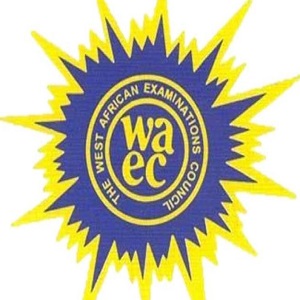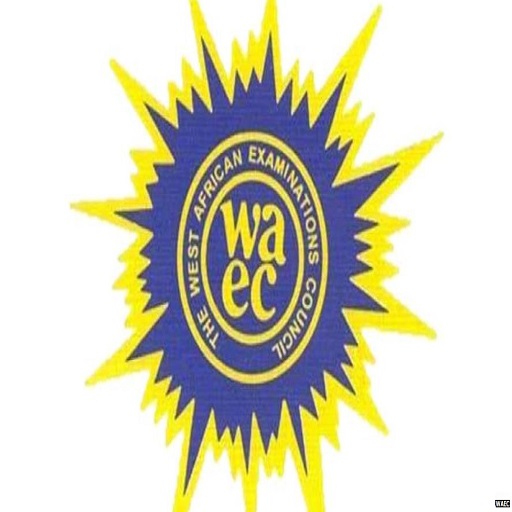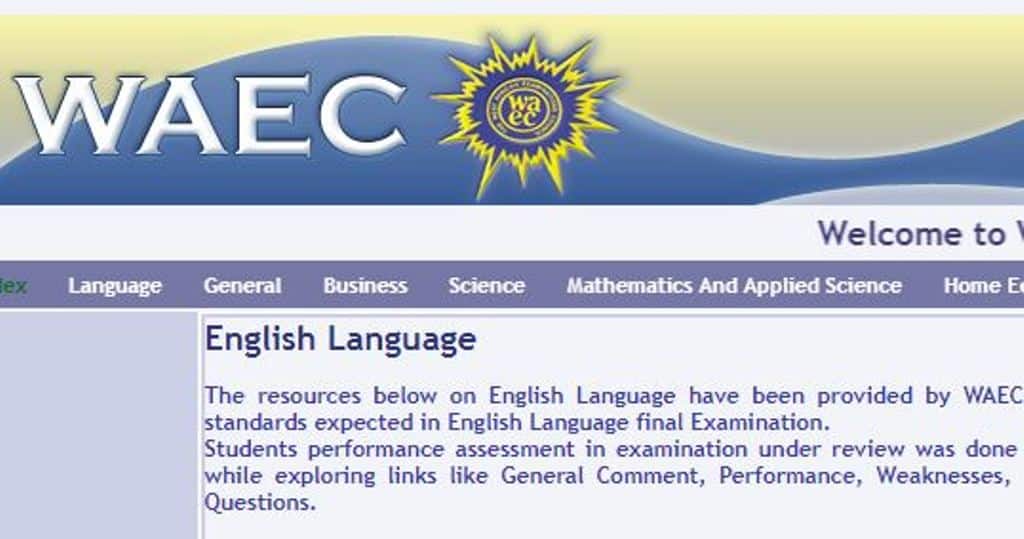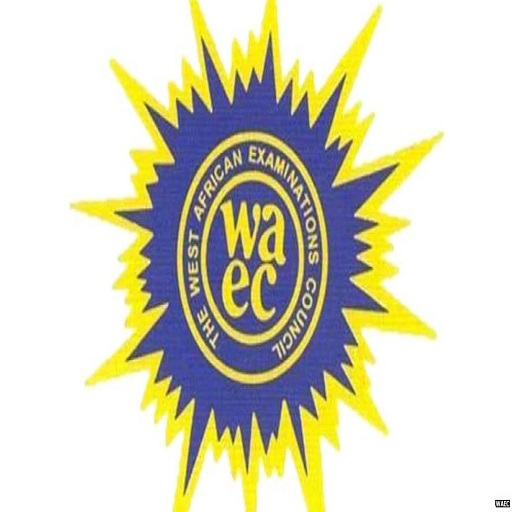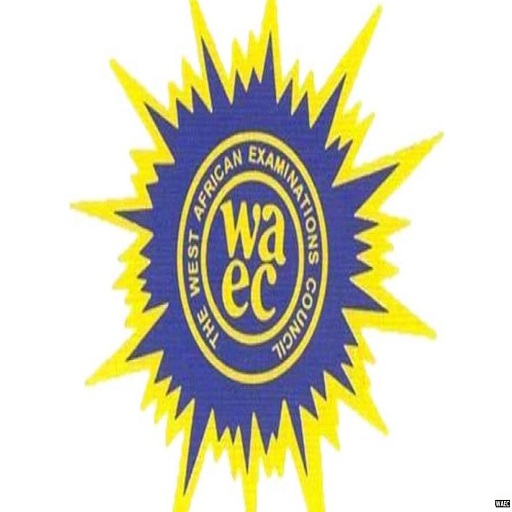Are you searching for Civic WAEC Question 2022? Civic WAEC past question 2022? civic waec question and answer 2022? 2022 civic waec question? civic waec question for 2022? WASSCE 2022 Civic question paper? WAEC 2022 Civic question paper? If yes, then your search ends here.
Related Post:
- Waec English Language Past Question 2022
- CIVIC PAST QUESTION 2020 PDF – PRIVATE CANDIDATE
- WAEC Syllabus for All Subjects 2022/2023
1. A prerequisite for orderliness is
A. humility
B. morality
C. hardwork
D. politeness
2. National symbols are also referred to as symbols of national
A. co-operation
B. identity
C. unity
D. development
3. Law of libel and defamation of character violates right to freedom of
A. fair hearing
B. religion
C. expression
D. association
4. Who among the following is not a foremost Nigerian nationalist?
A. Sir Abubakar Tafawa Balewa
B. Dr. Nnamdi Azikiwe
C. General Yakubu Gowon
D. Chief Obafemi Awolowo
5. The major reason for the enactment to traffic regulations is to
A. make sure people travel for business purpose
B. arrest traffic offenders and violators
C. ensure safety and allow easy flow of traffic
D. ensure the sustenance and longevity of the roads
6. The basic responsibility of parents is
A. providing necessities of life for the children
B. buying expensive gifts for the children
C. sending the children abroad for quality education
D. visiting sites of attraction with the children
7. The attitude that prevents peaceful resolution of inter-communal conflict is
A. conciliation
B. resentment
C. dialogue
D. mediation
Use the passage below to answer question 8 and 9.
It is a common practice for the youths of Upe village to meet every last Saturday of the month to build a proposed structure. Through this practice, they have successfully built a monumental market complex which attracts people from neighboring villages.
8. The zeal shown by the youth of Upe village is a manifestation of
A. community service
B. political participation
C. national development
D. town planning
9. The youth who took part in the various building projects in Upe village are said to be
A. reliable
B. self-reliant
C. hardworking
D. selfless
10. Which of the following sets of agencies are responsible for checking road worthiness of vehicles?
A. The Federal Road Safety Corps and Vehicle Inspection Office
B. The Police and National Security and Civil Defence Corps
C. Federal Road Safety Corps and the Nigerian Army
D. The Nigerian Army and Vehicle Inspection Office
11. Which of the following may not be vested with a constituted authority?
A. A family
B. A mob
C. A school
D. The sate
12. An individual who finds it difficult to do without in-take of prohibited substance is
A. a human trafficker
B. an armed robber
C. a drug addict
D. a kidnapper
13. Which of the following is not a method of recruiting victims for human trafficking?
A. Deceit
B. Threat
C. Application
D. Abduction
14. The law protecting certain individuals from being prosecuted is called
A. penal code
B. constitutional protection
C. immunity clause
D. legal rights
Use the cartoon in fig. 1 to answer questions 15 to 18.

15. We can conclude that the mother of the boy putting on a face cap in the cartoon in Fig. 1 is a
A. religious mother
B. responsible parent
C. wealthy person
D. child activist
16. The effect of the interaction as captured in the cartoon in Fig. 1 in relation to Civic Education is
A. mass mobilization
B. pressure group
C. peer pressure
D. popular participation
17. We can make inference from the response of the boy wearing short pants in the cartoon in Fig. 1 that the
A. needs the knowledge of Civic Education.
B. became industrious through empowerment
C. gets financial support from his family
D. lacks moral care of a responsible parent
18. Which of the following is not an advisable way through which the orientation of the boy wearing short pants in the cartoon in Fig. 1 can be corrected
A. subjecting him to harsh punitive measures
B. impacting an effective Civic Education in him
C. He needs morally upright and responsible parenting
D. An effective guidance and counseling section
19. Limitation to the right of life can be found in the case of
A. an imprisoned person
B. a kidnapped person
C. a condemned person
D. a trafficked person
20. in which of the following do citizens have equal rights? Right to
A. freedom of movement
B. freedom from discrimination
C. free education
D. form or join any political party
21. Interest and willingness to participate in the affairs of a nation are forms of
A. popular participation
B. national consciousness
C. political apathy
D. citizenship education
22. The social norms that represents the overall attitude of the people in a society is called
A. group values
B. general values
C. religious values
D. personal values
Use the quotation below to answer question 23.
My stiffest earthly assignment is ended and major life’s work is done. My country is now free… – Dr. Nnamdi Azikiwe
23. The speaker quoted above must have fought hard for national
A. prosperity
B. recognition
C. development
D. independence
24. Irresponsible parenting has the tendency of
A. encouraging egoistic tendencies
B. preserving of culture
C. promoting of positive values
D. promoting peaceful co-existence
25. Which of the following is a cause of political apathy in Nigeria
A. Adequate citizenship education
B. A free and fair election
C. Biased electoral umpires
D. Adequate political awareness
26. Representation of Nigeria in the senate is
A. Proportional
B. collegial
C. equal
D. unequal
27. Identify the odd one from the list below in relation to citizenship
A. payment of tax
B. right to personal liberty
C. protection of public utilities
D. Obedience to the law
28. According to the 1999 constitution as amended, sovereignty belongs to the
A. president who is also the Commander-in-Chief of the Armed Forces
B. people from whom government derives its power and authority
C. National Assembly which has power to make laws and amend the constitution
D. judiciary which interprets the laws of the sate.
29. Article 1 of the Universal Declaration of Human Right (UDHR) states that all human beings
A. have freedom of movement
B. are born free and equal
C. should be free from torture
D. have the right to recognition
Use the quotation below to answer questions 30 and 31.
If you cannot beat them, join them.
30. The statement is an indication of a society that is
A. ethically upright
B. morally degenerated
C. politically disintegrated
D. socially regenerated
31. Through which of the following means can the effect of the above quotation on the society be rectified?
A. Compulsory communal service
B. Strengthening of the constitution
C. Reorientation of values
D. Distribution of relief materials during emergency
32. Interpersonal relationship is promoted through the following except
A. confrontation
B. healthy competition
C. cooperation
D. communal living
33. An activity meant to promote and protect the interest of a country is
A. unitarianism
B. communism
C. communalism
D. nationalism
34. Democracy is important because it
A. accommodates popular participation
B. accommodates political apathy
C. encourage operational bureaucracy
D. breeds ethnic competition and rivalry
35. Which of the following criminal act is most commonly perpetrated by cult members
A. prostitution
B. Money Laundering
C. Corruption
D. Violence
Use the dialogue below to answer questions 36 and 37.
Tim: Jim, let’s go to the hospital and confirm our HIV status
Jim: Really? Does my face resemble that of someone with HIV? After all, I am too poor to engage in illicit sex, drug abuse nor keep numerous partners like you do.
Tim: It is more than what you think, Jim. You suffer other noticeable symptoms which makes me suspicious of your status.
Jim: Okay, just to satisfy your curiosity, let’s go.
36. From the above dialogue, noticeable symptoms Tim must have observed about Jim include the following except
A. profuse night sweats
B. persistent diarrhea
C. increase in appetite
D. unusual fatigue
37. Individual like Jim in the story above who believe HIV carriers are selective, can get enlightenment through
A. effective praying and fasting
B. youth empowerment programme
C. sex and civic education
D. popular participation
38. Which of the following is not a function of the judicial arm of government
A. Interpretation of law
B. Judicial review
C. Checking of arbitrariness
D. Initiation of bills
39. The officials of the administrative agency of the state that are most active in governance belongs to the
A. Legislative organ
B. Judicial organ
C. executive organ
D. civil societies.
40. One major reason some Nigerian youths join cult groups is
A. inadequate religious and moral instruction
B. poor welfare programme for students
C. inadequate support from guardians and parents.
D. prevalence of corruption among political elites
41. All the following are aims of youth empowerment scheme except
A. reduction of youth delinquency
B. promotion of self-reliance
C. maximization of profit
D. building of self-esteem
42. A situation where only 35% of over 80 million registered voters participated in general election, is an indication of political
A. instability
B. exclusiveness
C. apathy
D. socialization
43. The organization working against dictatorship and mounting of campaigns for effective civil rule are called
A. professional bodies
B. religious institutions
C. political parties
D. civil societies
Use the diagram in Fig. 2 to answer questions 44 and 45

44. In a democratic government structure, the portion marked x in the diagram in Fig. 2 is occupied by the
A. press
B. judiciary
C. civil societies
D. political parties
45. The major function of the activity of the occupiers of the portion marked x in the diagram in Fig. 2 is to
A. interpret laws
B. execute policies
C. make by-laws
D. formulate policies
46. Which of the following is not a problem of civil society?
A. Leadership struggle
B. Poor funding
C. Planning to capture political power
D. Embezzlement of fund
47. One of the major complaint against the public service is
A. inefficiency
B. victimization
C. discrimination
D. election rigging
48. From which of the following sources are Constitutional provisions not derived ?
A. Statutory sources
B. Customary sources
C. Judicial precedents
D. Story books
49. The head of the judicial arm of government in Nigeria is the
A. Chief Justice
B. Supreme Leader
C. Chief of Staff
D. Chief Magistrate
50. The composition of National Assembly of the Federal Republic of Nigeria could be termed
A. unicameral
B. collegial
C. bicameral
D. hierarchical
Civic WAEC Question 2022 ESSAY (THEORY) ANSWERS
SECTION A (NATIONAL ETHICS, DISCIPLINE, RIGHTS AND OBLIGATIONS)
Candidates are expected to answer at least one question from this section.
Question1:
1A) DEFINITION OF HUMAN RIGHTS : Human Rights refer to those inalienable/natural rights, privileges and freedoms enjoyed by all human beings regardless of nationality, gender, language, religion or any other factors which are usually entrenched in the constitution of a state and safeguarded by international laws.
1B). CONDITIONS FOR HUMAN RIGHTS VIOLATION IN NIGERIA
- i. Declaration of state of emergency
- ii. Imposition of curfew
- iii. Conviction by court(s) of law/imprisonment
- iv. Outbreak of contagious diseases
- v. Violation of judicial independence/compromised judiciary
- vi. Outbreak of war
- vii. Violation of laws against libel and slander
- viii. Emergence of dictatorial forms of leadership/ dictatorial tendency of government
- ix. Compulsory acquisition of private properties in the interest of the state
- x. Natural disaster e.g. climate change, earthquake, drought, flood, famine, etc
- xi. Civil strife e.g. riots
- xii. Terrorism/insecurity/insurgency
- xiii. Jungle justice/mob actions
- xiv. Violence e.g. kidnapping, ritual killings, rape, etc
- xv. Economic/social conditions e.g. hunger, poverty, IDPs, refugees, etc
- xvi. Fraud/cybercrimes
- xvii. Secession threats e.g. activities of IPOB, OPC, Arewa Peoples Congress, etc
- viii. Ignorance/illiteracy
- xix. Immunity clause
- xx. Harmful traditional/cultural practices e.g. incision of tribal marks, female genital mutilations, etc
- xxi. Coup d’etat/Military rule/authoritarian regimes
- xxii. Persons under investigation/house arrest
1C). REASONS FOR THE ENTRENCHMENT OF CITIZENS’ RIGHTS IN THE NIGERIAN CONSTITUTION
- i. To ensure preservation / protection of Human Rights
- ii. To protect lives and properties of the citizens/guarantee law and order
- iii. To prevent arbitrariness/dictatorship/injustice
- iv. To ensure the protection of dignity of human persons/life
- v. To guarantee good governance in the state
- vi. To conform with international laws/treaties/conventions on human rights
- vii. To promote peaceful co-existence among citizens irrespective of their differences
- viii. To allow citizens to seek redress in a court of law when their rights are violated
- ix. To promote the principle of rule of law
- x. To allow citizens to know their rights
- xi. To ensure easy reference in a court of law/future application of the constitution
QUESTION 2
2A) QUALITIES OF A RESPONSIBLE PARENT
- i. Self discipline
- ii. Ability to lead family in a right way
- iii. Love and care
- iv. Tolerance/endurance
- v. Relevant knowledge of family planning and improved standard of living
- vi. Hard work leading to secure source of income and ability to provide for the family
- vii. Positive role model/exemplary leadership
- viii. Patience
- ix. Understanding/maturity
- x. Consistent good character
- xi. Empathy/emotional support
- xii. Ability to create time for children
- xiii. Ability to reward appropriately
- xiv. Respect
- xv. Ability to encourage children to participate in decision-making
- xvi. Good temperament
- xvii. Flexibility
- xviii. Sense of right guidance/counseling
- xix. Effective communication
- xx. Good listening skills
- xxi. Goods morals
- xxii Sense of responsibility
- xxiii. Sense of fairness/impartiality
- xxiv. Humility
2B). ROLES OF RESPONSIBLE PARENTING IN THE UPBRINGING OF GOOD
CITIZENS IN THE SOCIETY
- i. Teaching children/wards moral and religious values/socialization
- ii. Supporting children to gain sound and qualitative education
- ii. Training children to be law abiding citizens
- iv. Instilling discipline in children/wards within the family unit
- v. Inculcating lofty virtues such as honesty, tolerance, hard work, co-operation, e.t.c in children/wards
- vi. Training/preparing children for leadership role in society
- vii. Training children to be peace loving in society
- viii. Serving as role models to children
- ix. Having effective line of communication with children
- x. Engaging children in productive activities
- xi. Making children to be responsible and independent
- xii. Respecting the opinions of children
- xiii. Guiding children against the development of psychological problems
- xiv. Providing parental guidance/counseling for the children
- xv. Teaching children their rights, duties and obligations as responsible citizens
- xvi. Mentoring children for effective participation in the development of the society
- xvii. Inculcating the spirit of self-confidence in children
- xviii. Promoting positive attitude to work
- xix. Encouraging social interactions among children
- xx. Allowing children to make their own decisions
- xxi. Giving exemplary leadership
- xxii. Training children to be patriotic and nationalistic
QUESTION 3
3A). REASONS FOR THE DIFFICULTY IN MAINTAINING LOW RATE OF ACCIDENTS ON NIGERIAN ROADS
- i. Over speeding
- ii. Over loading
- iii. Poor road network/infrastructure e.g. narrow, dusty and rough roads
- iv. Disobedience to traffic regulations/signs
- v. Disobedience to orders of traffic officials
- vi. Poor maintenance/bad conditions of vehicles/unworthy road vehicles
- vii. Indiscriminate parking of vehicles on the roads
- viii. Tiredness on the part of drivers due to long distance or night driving
- ix. Drunkenness or driving under the influence of drugs
- x. Poor driving habits e.g. recklessness, carelej,sness, impatience, ove;isonfidence, e.t.c
- xi. Illiteracy/ignorance/poor knowledge of road and road signs
- xii. Lack of road marks and signs on major roads
- xiii. Avoiding safety gears e.g. seatbelt, helmet, etc
- xiv. Distractions such as phone calls, eating, drinking, reading, adjusting mirrors, etc. while driving
- xv. Poor vision and other health impairments of drivers
- xvi. Licensing of unqualified people to drive, e.g. the under-aged
- xvii. Disobedience to traffic laws
- xviii. Traffic officials condone and connive with drivers to overlook traffic offence
- xix. Tail gating i.e driving too closely behind another vehicle
- xx. Poor weather condition
- xxi. Stray animals crossing the roads
3B). MEASURES ADOPTED BY THE NIGERIAN GOVERNMENT TO REDUCE THE RATE OF ACCIDENTS ON NIGERIA ROADS
- i. Provision of good roads/rehabilitation of roads
- ii. Provision and erection of traffic lights
- iii. Enactment and enforcement of traffic laws
- iv. Periodic inspection of vehicles on the roads
- v Establishing and equipping traffic enforcement agencies e.g. FRSC, VIO, etc
- Punishment of traffic offenders
- Introduction of road safety regulations and civic duties into the school curriculum
- Organizing symposia and public awareness programmes on road usage
- Issuance of driver’s license to only qualified drivers
- Provision of Highway codes
- Construction of speed ramps on roads
- Installation of CCTV cameras at cross sections of roads Improvement on vehicle maintenance policy
- Provision of road marks and signs
- Punishment of corrupt and compromised traffic official Construction of footpaths for pedestrians
- Clearing obstructions on highways
- Conducting researches into ways of improving the safety of road users Proper demarcation of roads to prevent accidents
- Provision of towing vans to evacuate broken down vehicles
- Organizing periodic training for officials of traffic regulatory agencies Supporting and funding traffic regulatory agencies e.g. FRSC, VIO, etc
- Introduction of Road Safety Clubs in schools
- Improved remunerations for traffic officials to make them effective and efficient
SECTION B (EMERGING ISSUES IN THE SOCIETY)
Candidates are expected to answer at least one question from this section.
QUESTION 4
4A). NEGATIVE CONSEQUENCES OF CULTISM ON MEMBERS
- i. Untimely death
- ii. Social stigmatization/bad image or loss of reputation
- iii. Truancy
- iv. Poor academic performance/unfulfilled educational ambitions
- v. Lying, theft and other unethical behaviour
- vi. Financial recklessness/frivolous/extravagant spending
- vii. Strained relationship with peers, friends, families, etc
- viii. Prostitution/sexual promiscuity/escapades/same sex attraction
- ix. Self isolation
- x. Risky health issues like contracting HIV/AIDS/other sexually transmitted diseases
- xi. Drug abuse/addiction/substance use and abuse
- xii. Pursuit of vendetta/vindictiveness
- xiii. Blackmail
- xiv. Thuggery/gangsterism
- xv. Illegal possession of fire arms
- xvi. Living in fear
- xvi. Loss of respect and disregard for lives and property
- xviii. Loss of moral values and good character
- xix. Emotional instability/insanity
- xx. Expulsion from school/drop-out
- xxi. Involvement in examination malpractice
- xxii. Unruly/antisocial behaviour
- xxiii. Involvement in crime
- xxiv. Imprisonment
- xxv. Suicide contagion
4B) WAYS RESPONSIBLE PARENTING ASSIST IN REDUCING HIGH RATE OF CULTISM IN THE SOCIETY
- i. By providing sound and qualitative education to children/wards
- ii. Good home training/Instilling discipline/sense of decency in children/wards
- iii. Discouraging unnecessary relationship/association with bad company
- iv. Educating children/wards about the dangers of being involved in cult activities
- v. Provision of basic needs of children/wards
- vi. Collaboration/cooperation with relevant agencies for curbing cultism in the community
- vii. Engaging children/wards in empowerments programme for skill acquisition for self-reliance in society
- viii. Inculcating positive values to children/wards such as kindness, honesty, hardwork, truthfulness, etc
- ix. Teaching children to be law abiding citizens
- x. Discouraging children from participating in negative social networking
- xi. Inculcating in children/wards moral and religious instructions
- xii. Training children to become responsible peace loving citizens
- xiii. Serving as effective/exemplary role model to children and wards
- xiv. Effective communication with children/wards
- xv. Providing proper guidance and counseling to children/wards
- xvi. Inculcating in children and wards spirit of self-confidence
- xvii. Full involvement in children’s day-to-day activities
- xviii. Discouraging children from watching television programmes/videos that promote violence/indecent behaviours
- xix. By showing love and caring for the children
QUESTION 5
5A) REASONS WHY THOSE WHO TESTED POSITIVE TO HIV/AIDS ARE BEING DISCRIMINATED AGAINST IN THE SOCIETY
- HIV/AIDS is a life threatening disease Fear of being infected
- Fear of death
- Myths/misconceptions about HIV/AIDS transmission Lack of understanding of HIV/AIDS
- Irresponsible media reporting on the epidemic High cost of treatment
- Self protection consciousness
- Lack of legal redress against discrimination of PLWHA due to low self-esteem
- The incurable nature of HIV/AIDS
- Failure to sanction people discriminating against PLWHA in the society Visible conditions of PLWHA make some people feel uneasy or uncomfortable
- Fear of exposing HIV/AIDS victim status by medical officials
Intolerance and lack of empathy for the plights of PLWHA - Illiteracy/ignorance
- Inadequate information and awareness
- Association of HIV/AIDS with infidelity, homosexuality, etc
- People living with HIV/AIDS are seen as irresponsible
- Religious beliefs/inadequate attention given by religious bodies to the ills of stigmatizing PLWHA in the society
- Difficulty in accessing treatment/managing HIV/AIDS
- Pride/looking down on HIV/AIDS victims
5B) WAYS THE CONTRACTION OF HIV/AIDS IMPACT ON THE SOCIO- ECONOMIC LIFE OF THE VICTIM
- i. Untimely death
- ii. Depression or low self-esteem
- iii. Increased level of poverty
- iv. Increased dependency on family and society
- v. It leads to broken homes/marriage and family destabilization.
- vi. It makes victim very uncomfortable/ health impairment
- vii. Stigmatization/discrimination
- viii. High dependency on drugs
- ix. Self-isolation/withdrawal syndrome
- x. Poor nutrition/malnutrition.
- xi. Poor academic/Job performance
- xii. Memory loss
- xiii. Job loss/loss of income/means of livelihood
- xiv. Loss of reputation/shame/casting of aspersions on victim’s chastity
- Denial of certain rights
- xvi. Neglect by family members due to prolonged nature of HIV/AIDS
- xvii. Decrease in standard of living
- xviii. Increased expenditure on medical care
QUESTION 6
6A) EMPOWERMENT SKILLS REQUIRED FOR SELF-RELIANCE OF YOUTHS IN NIGERIA SOCIETY
- i. Life coping skills
- ii. Manipulative skills
- iii. Intellectual/cognitive skills
- iv. Creative/Artistic skills
- v. Communication skills
- vi. Interpersonal/human relation skills
- vii. Vocational/Entrepreneurial skills
- viii. Leadership/Organizational skills
- ix. Decision making skills
- x. Motivational/self-actualization skills
- xi. Negotiation skills
- xii. Goal setting skills
- xiii. Team building/co-operative skills
6B) REASONS FOR THE ESTABLISHMENT OF THE NATIONAL YOUTH SERVICE CORPS (NYSC) IN NIGERIA
- To promote unity in diversity and national integration among Nigerian youths
- To inculcate discipline in Nigerian youths by instilling in them a tradition of industry at work
- To give Nigerian youths the opportunity to learn about higher ideals/goals of national achievement, social and cultural advancement of the country
- To instill positive mental attitudes in Nigerian youths through shared experiences and appropriate training
- To encourage Nigerian youths to build self-employment skills in order to help them become self -reliant
- To contribute to the accelerated growth of the national economy
- To foster the development of common ties among Nigerian youths
- To instill in Nigerian youths, sense of national consciousness, corporate existence and shared destiny
- To ensure effective utilization of skills of Nigerian youths in area of national needs
- To remove prejudices, myths and erroneous beliefs among youths about Nigerians of other ethnic and religious groups
- To expose Nigerian youths to the varied ways of life of people in different parts of the country
- To encourage Nigerian youths to avoid religious intolerance To promote free movement of labour
- To encourage employers to hire qualified Nigerian youths regardless of their state of origin
- To prepare Nigerian youths for leadership roles in the society
- To give Nigerian youths practical on-the-job experiences for future employment prospects
SECTION C (GOVERNMENTAL SYSTEM AND PROCESSES)
Candidates are expected to answer at least one question from this section.
QUESTION 7
7A). DEFINITION OF POLITICAL PARTY AS A PILLAR OF DEMOCRACY
Political party is an organized group of individuals who share similar political ideology and aims at contesting and winning elections in order to gain political power and occupy public offices in a democratic state.
7B). WAYS OF ENHANCING THE CREDIBILITY OF DEMOCRATIC ELECTIONS IN
NIGERIA
- i. Ensuring the independence and non-partisanship of Electoral Commissions at all levels
- ii. Fair delineation of electoral constituencies
- iii. Registration/compilation of credible voters’ register
- iv. Public display of voters’ lists
- v. Adequate security of electoral personnel, materials and voters
- vi. Enforcement of secrecy of votes during voting and counting of votes
- vii. Electronic transmission of election results/public announcement of results immediately after the counting of ballot papers/votes
- viii. Strict enforcement of appropriate laws against under-age voting, double voting, impersonation, etc
- ix. Transparency during voting and counting of votes
- x. Provision for the challenge of election results in tribunals/courts of law
- xi. Adequate training of electoral officials
- xii. Adequate remuneration for electoral officials
- xiii. Funding of electoral bodies from a consolidated account/financial autonomy for electoral bodies
- xiv. Periodical review of electoral laws to cater for emerging electoral situations
- xv. Effective sensitization of the public on dangers of rigging/electoral malpractices
- xvi. Discouraging corruption during electoral processes
- xvii. Alleviation of poverty
- xviii. Use of modem technology in the conduct of elections
- Strict enforcement of law against vote buying and other means of financial/material inducement during elections and other related political parties activities
- Making political offices less attractive
- Ensuring the independence of election tribunals/swift dispensation of electoral petitions and matters
- Ensuring effective watchdog/election reporting role of the press
- Ensuring easy collection of voters’ cards by registered voters
- State funding of political parties
- Existence of vibrant civil society organizations as watchdogs
- Enforcement of appropriate sanctions against compromised electoral official e.g. suspension, dismissal, etc
- Public enlightenment of voters
- Periodic reward/recognition of outstanding electoral officials
Question 8
A. FORMS OF CIVIL SOCIETY:
- (a) Pro-democracy groups – are collection of people advocating for human rights of individuals as well as the establishment and promotion of democratic principles in a civil society. e.g. Campaign for Democracy (CD), Civil Liberties Organization (CLO). Committee for the Defence of Human Rights (CDHR), etc.
- (b) Labour groups – are made up of workers who are members of labour unions that protect the interest of their members by influencing public and corporate policies on issues that bother on workers’ salaries, welfare and conditions of service. Examples are Nigerian Labour Congress (NLC), Trade Union Congress (TUC), e.t.c.
- (c) Professional groups – are professional bodies with common interest aimed at regulating the work ethics of their members and influencing government policies that will promote career advancement and other opportunities. e.g. Nigerian Union of Teachers (NUT), Association of National Accountants of Nigeria (ANAN) Institute of Chartered Accountants of Nigeria (ICAN), etc.
- (d) Religious groups – are religious organizations that promote the faith of members and fight for their religious welfare as well as ensuring peaceful co-existence among Nigerians e.g. Christian Association of Nigeria (CAN), Supreme Council for Islamic Affairs (SCIC), etc.
- (e) Student groups – are advocacy platforms for students to advocate for improved students welfare, social justice, good governance and a better funded educational system. A good example is the National Association of Nigerian Students (NANS). (0 Gender-based groups – are groups of Non-Governmental Organizations (NGOs) that are committed to promoting gender equity, equal opportunities and human rights for all. Examples are Women’s Right Advancement and Protection Action (WRAPA), Diaspora African Women’s Network (DAWN), Moremi Institute (MI), etc.
- (g) Human rights groups – are collection of individuals and non-governmental organizations dedicated to human right advocacy and protection of rights of individuals. e.g. Amnesty International, Human Rights Watch, Civil Liberty Organization (CLO), Committee for the Defence of Human Rights (CDHR), etc.
QUESTION 9
REASONS FOR WHICH THE PUBLIC SERVICE SECTOR IN NIGERIA HAS NOT BEEN PROFICIENT
- i. Inadequate funding
- ii. Bribery and corruption
- iii. Poor/negative attitudes of public servants to work
- iv. Politicization of public service
- v. Red-tapism/bureaucratic bottleneck
- vi. Poor condition of service of public servants
- vii. Colonial influence
- viii. Nepotism, tribalism and favoritism
- ix. Over-staffing/redundancy
- x. Inconsistency of government policies
- xi. Frequent change in government/political instability
- xii. Inadequate and deteriorating state of ‘ astructure/tools
- xiii. Poor aannd inadequate training of m ower
- xiv. Inadequate human resources/shortage of expertise/qualified personnel
- xv. Poor remuneration of public servants
- xvi. Absence of competitive environment
- xvii. Lack of meritocracy in appointment and promotion
- xviii. Poor maintenance culture
- xix. Poor organization
- xx. Non-accountability of public servants
- xxi. Misallocation of resources and maladministration
- xxii. Wrong use of public service for political patronage
- xxiii. Inter and intra-departmental conflicts
- xxiv. Political interference
- xxv. Indiscipline
- xxvi. Lack of patriotism by public servants
- xxvii. Wasteful attitudes e.g. waste of manpower and resources due to over-duplication of offices/resources in ministries and parastatals
More information about waec visit www.waecnigeria.org

